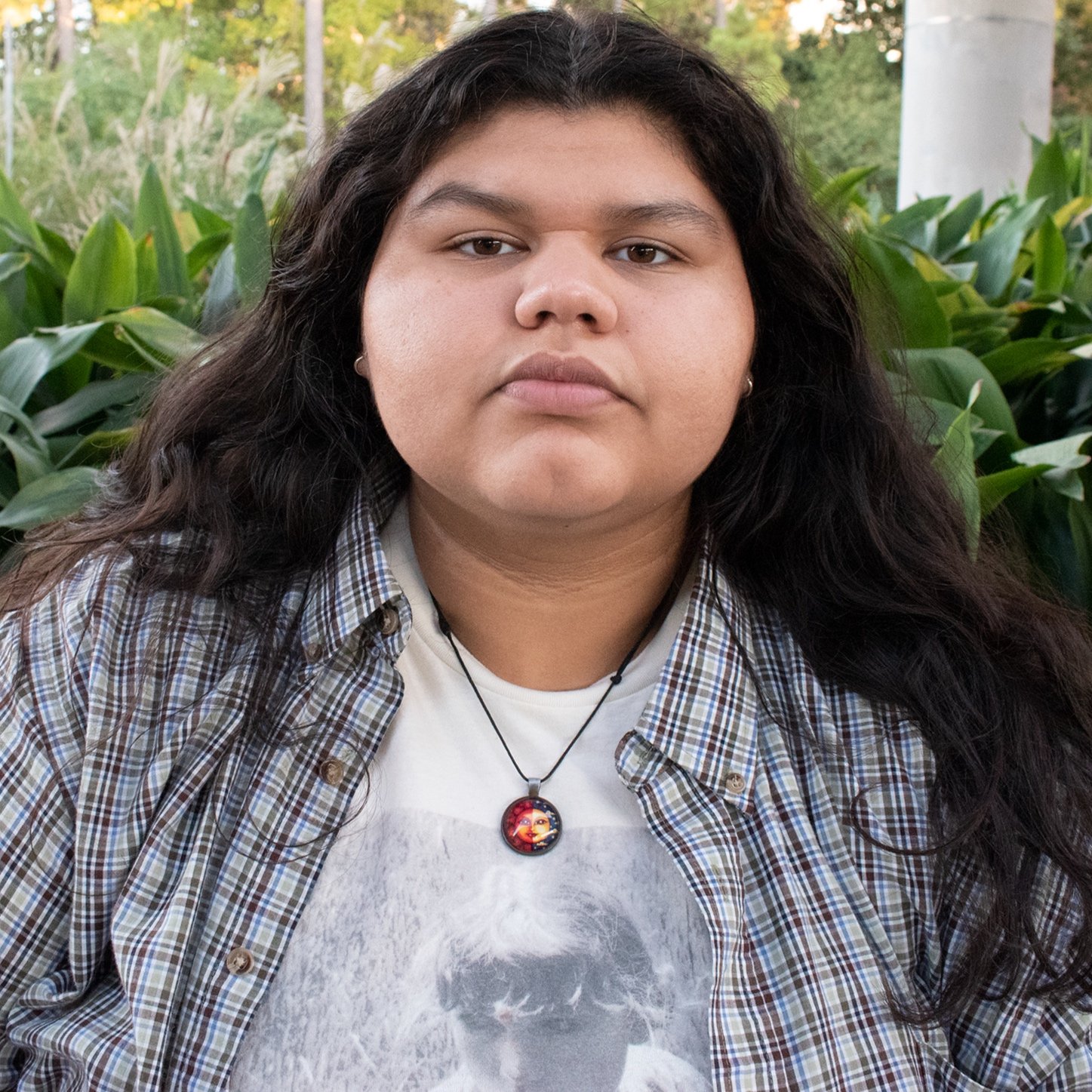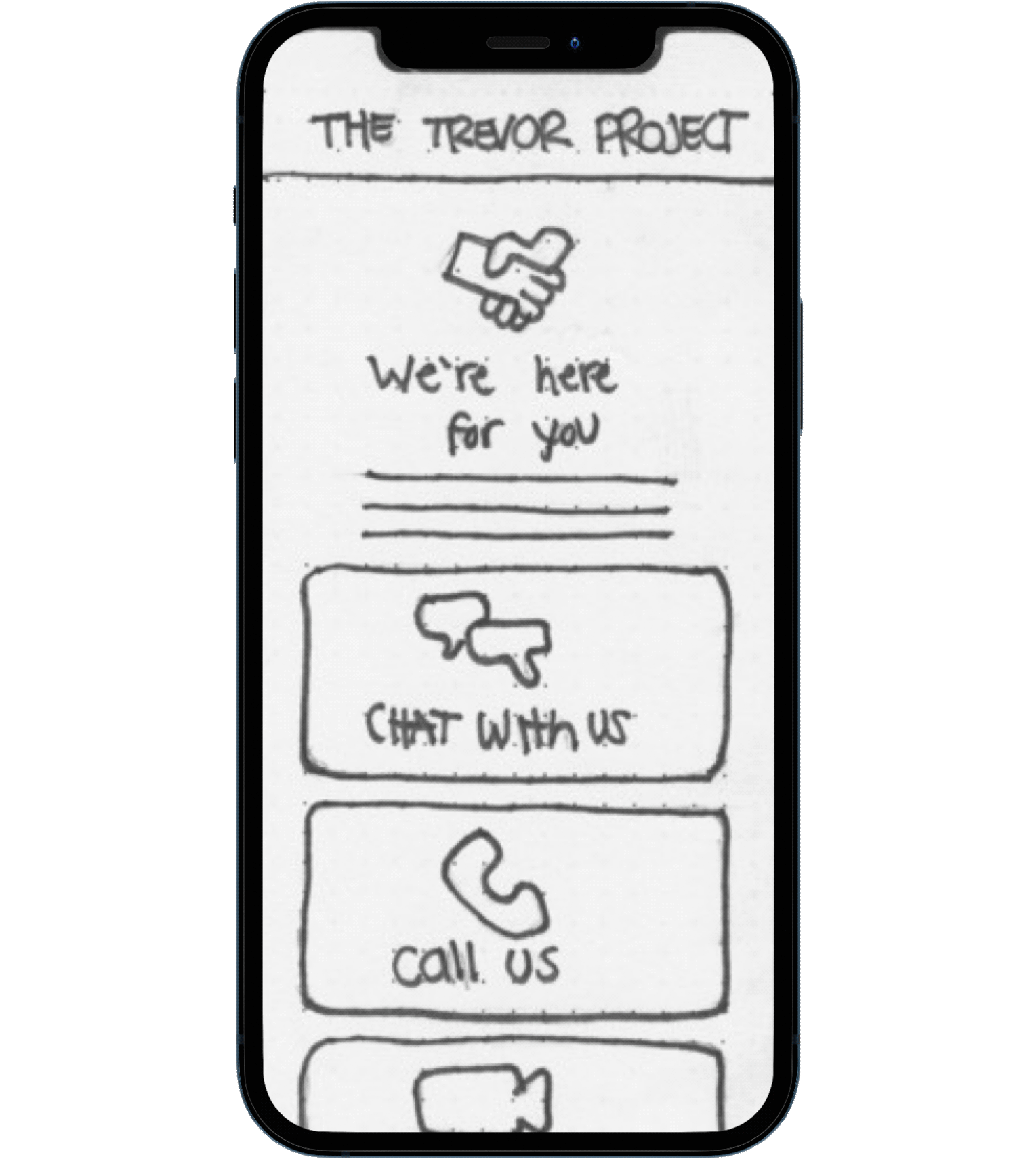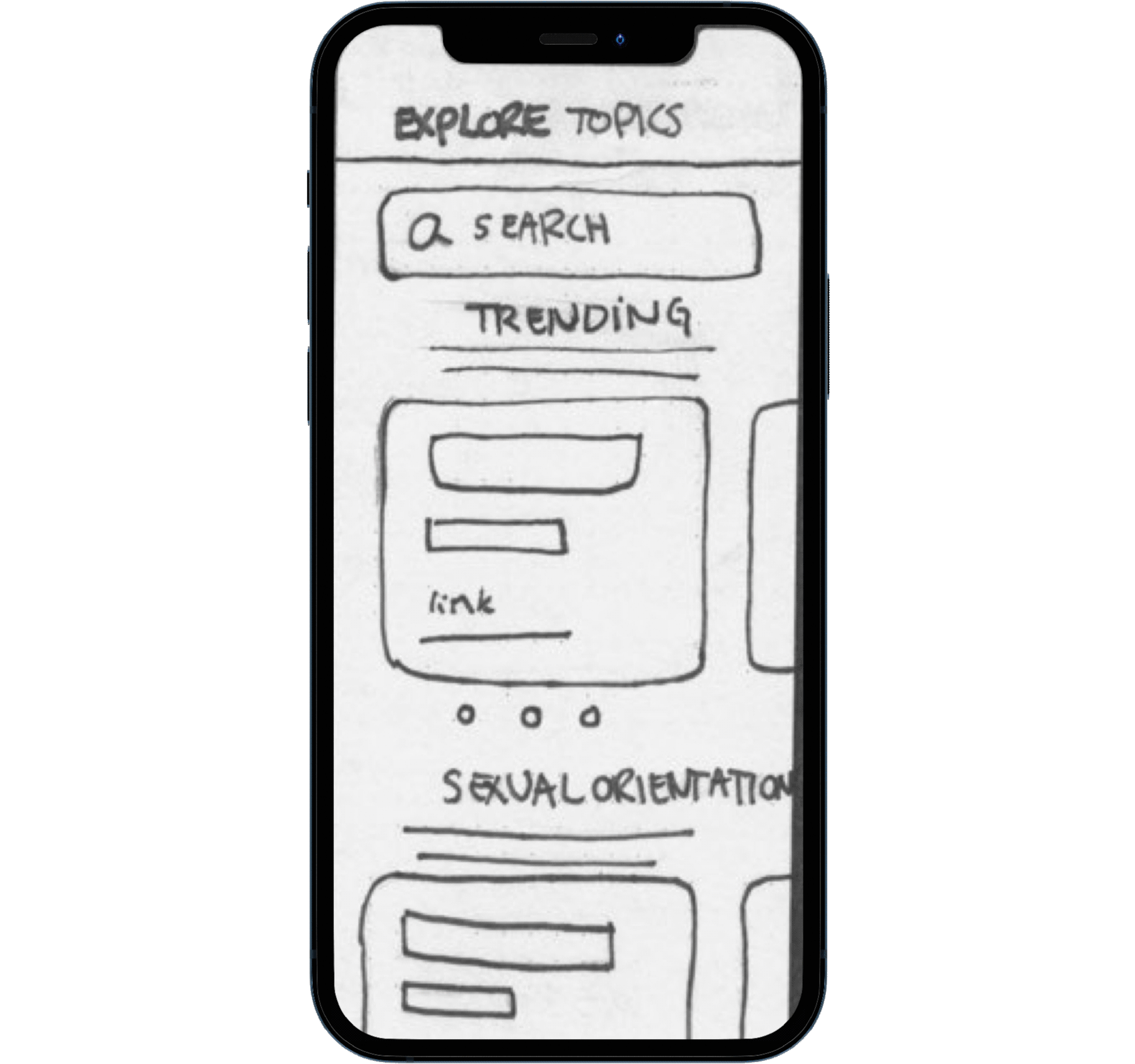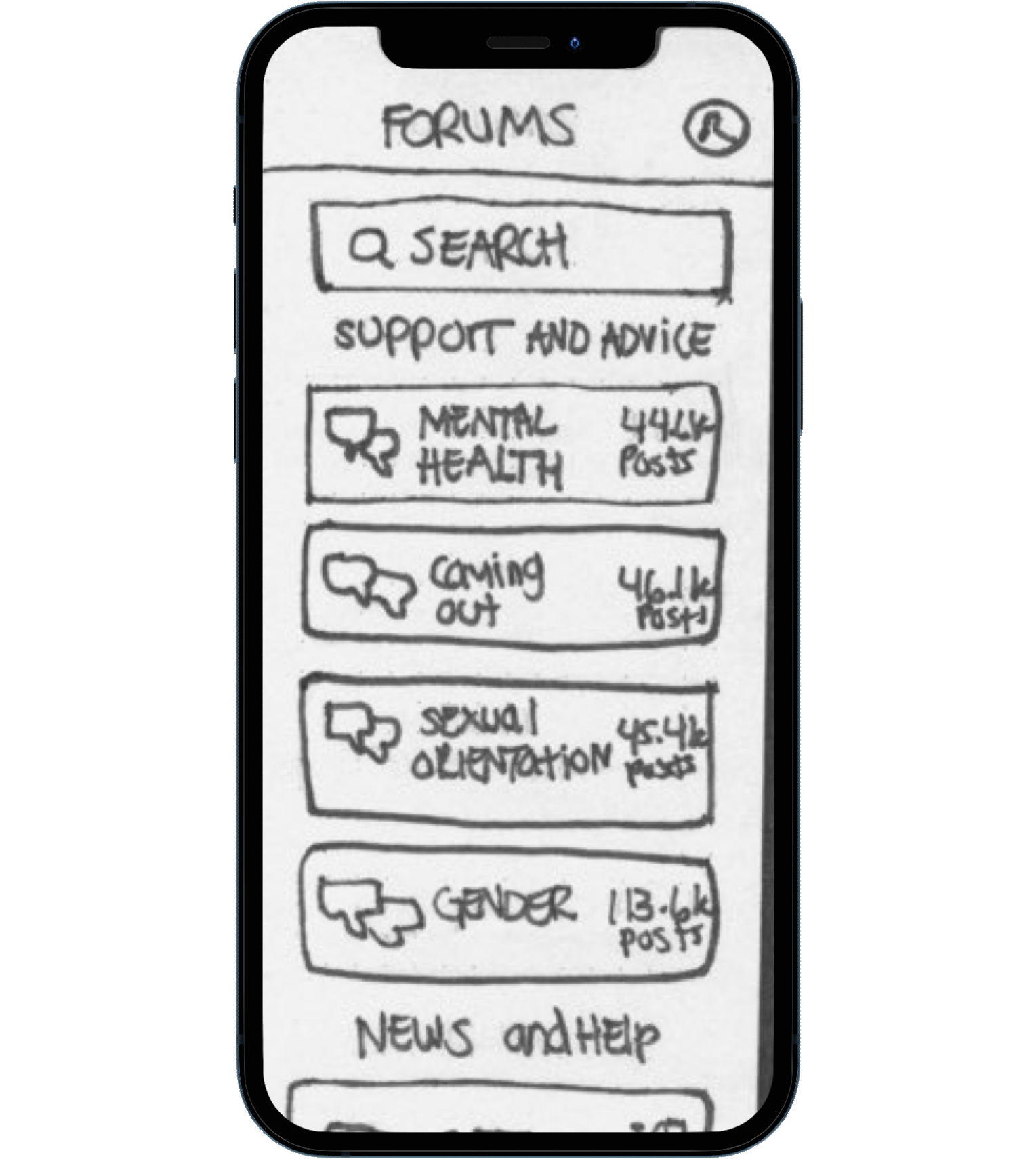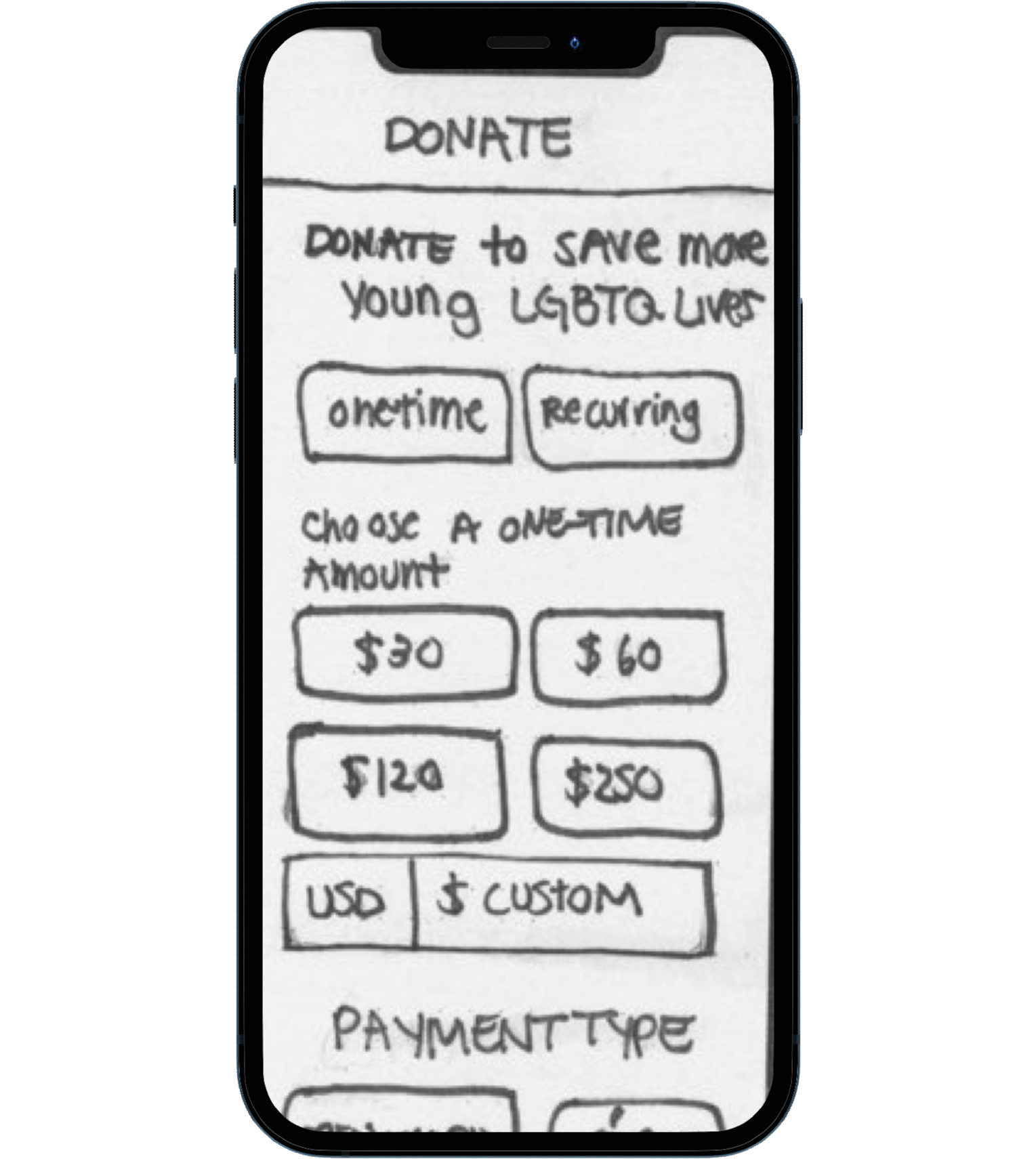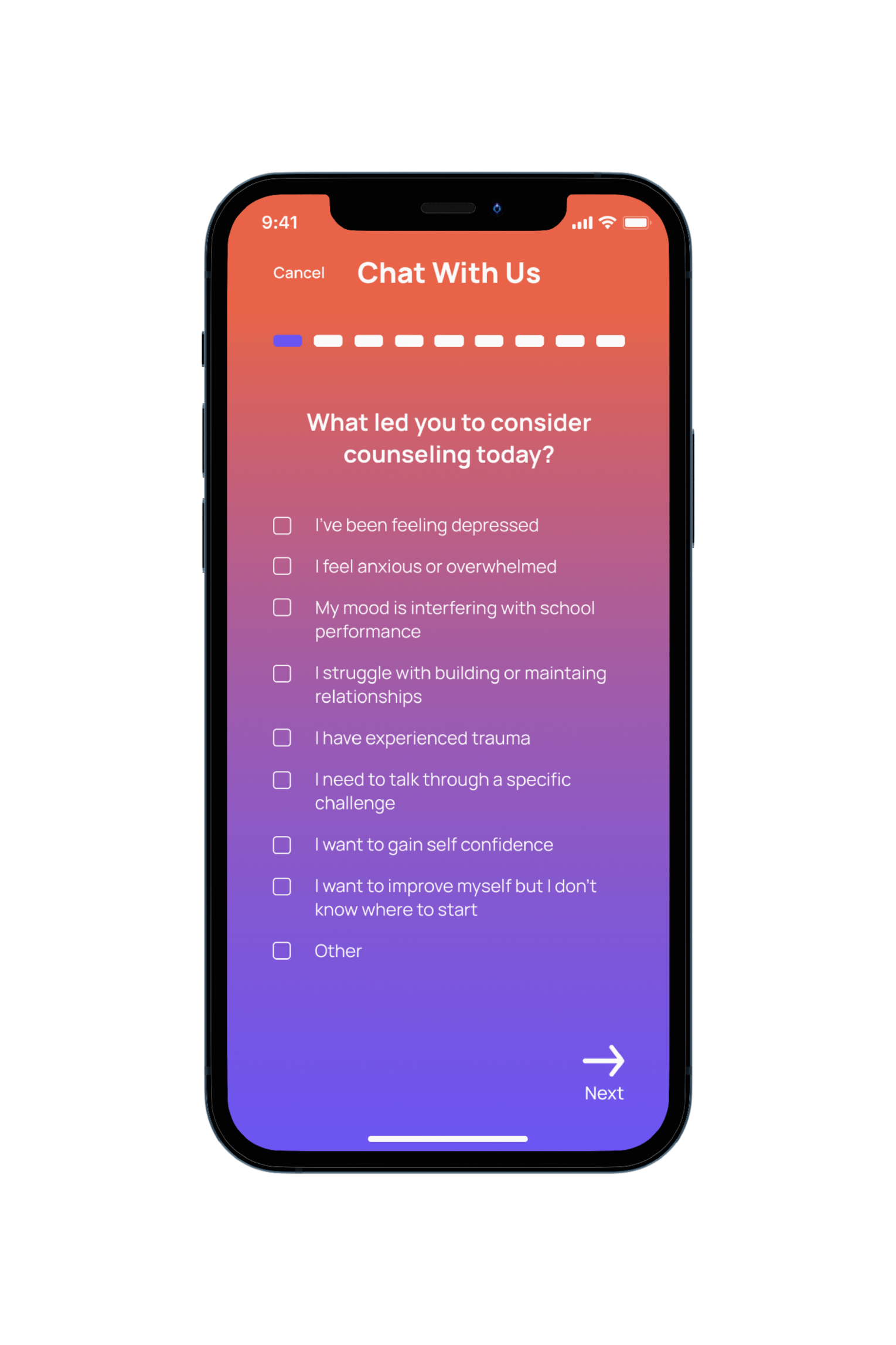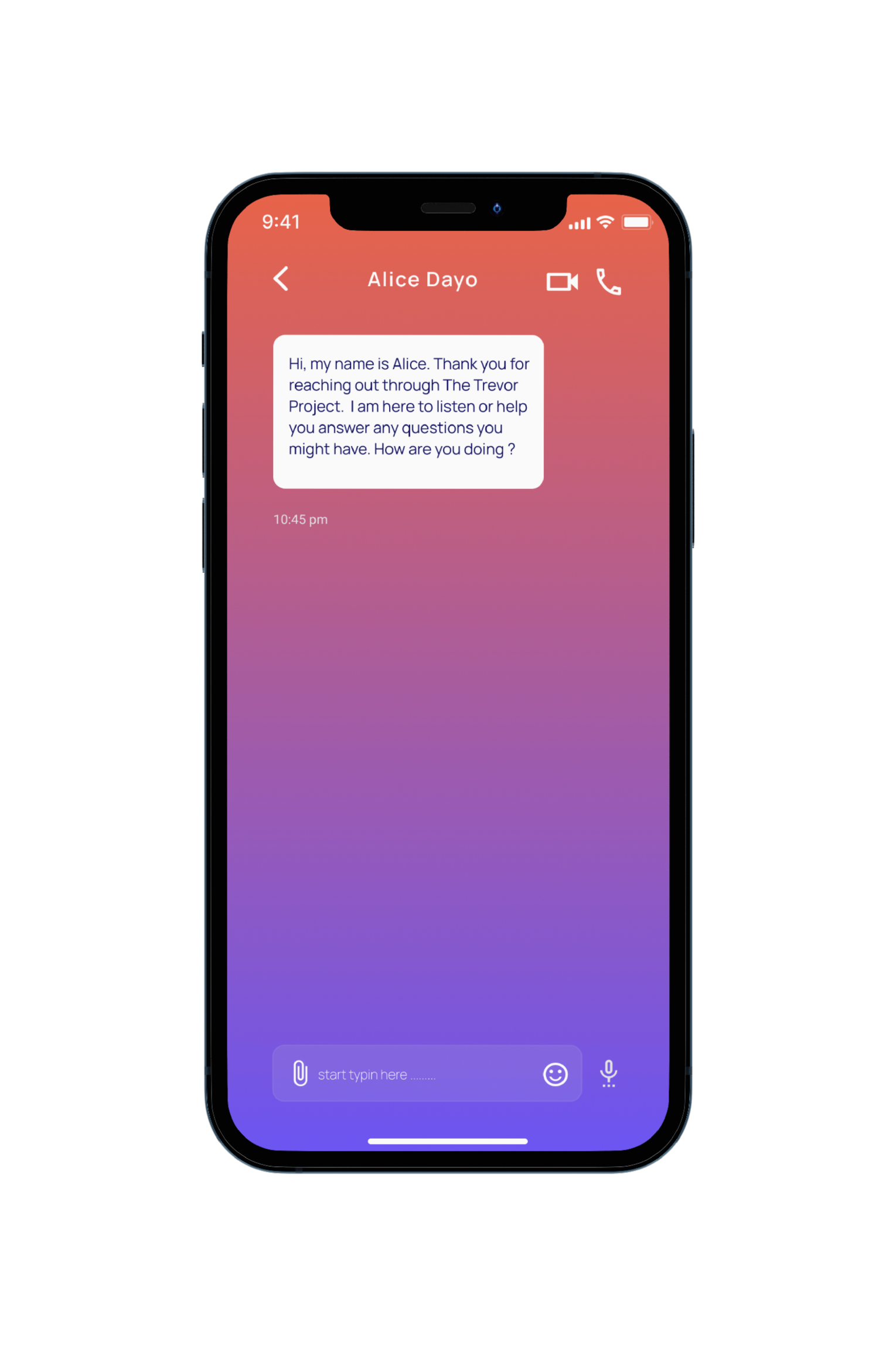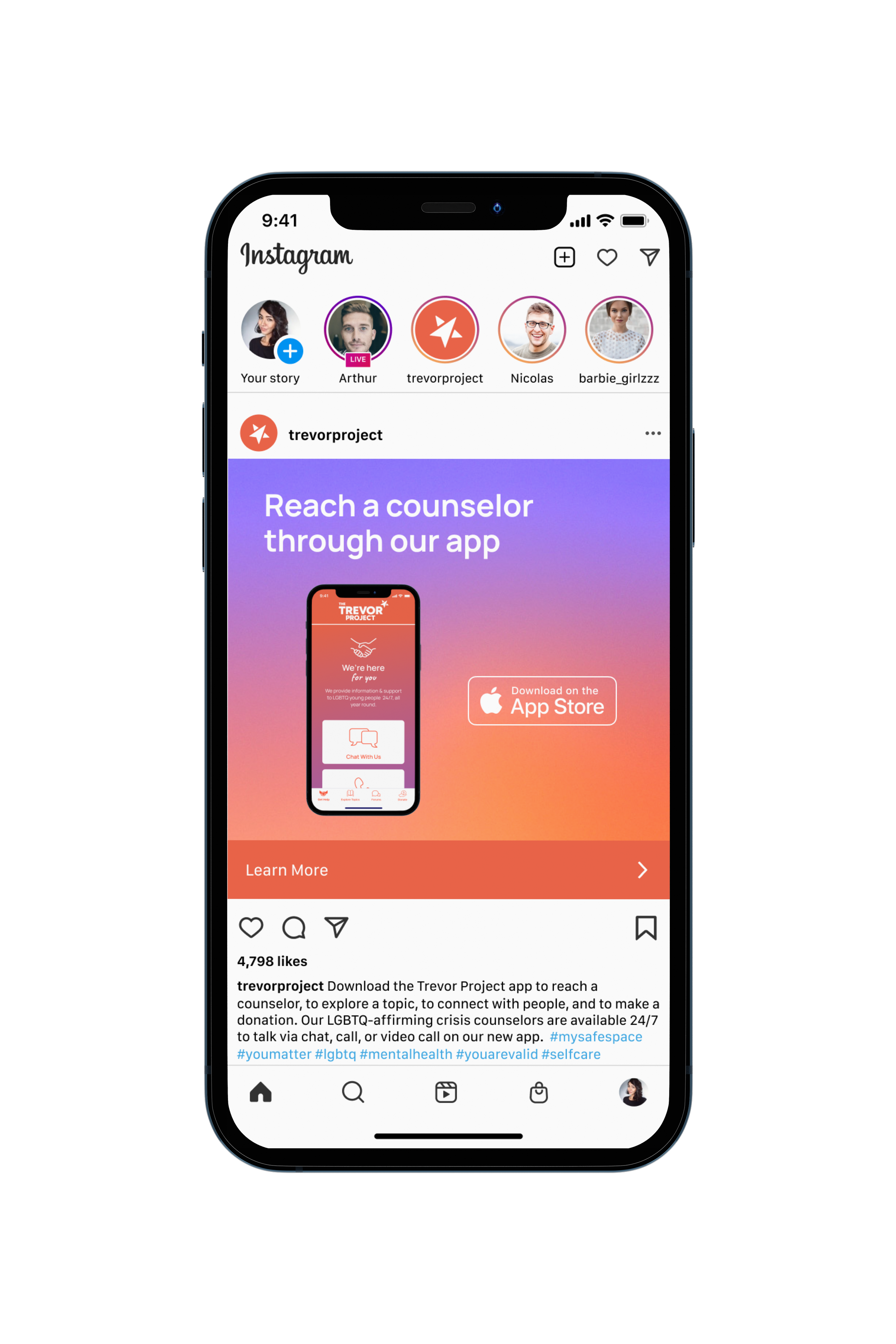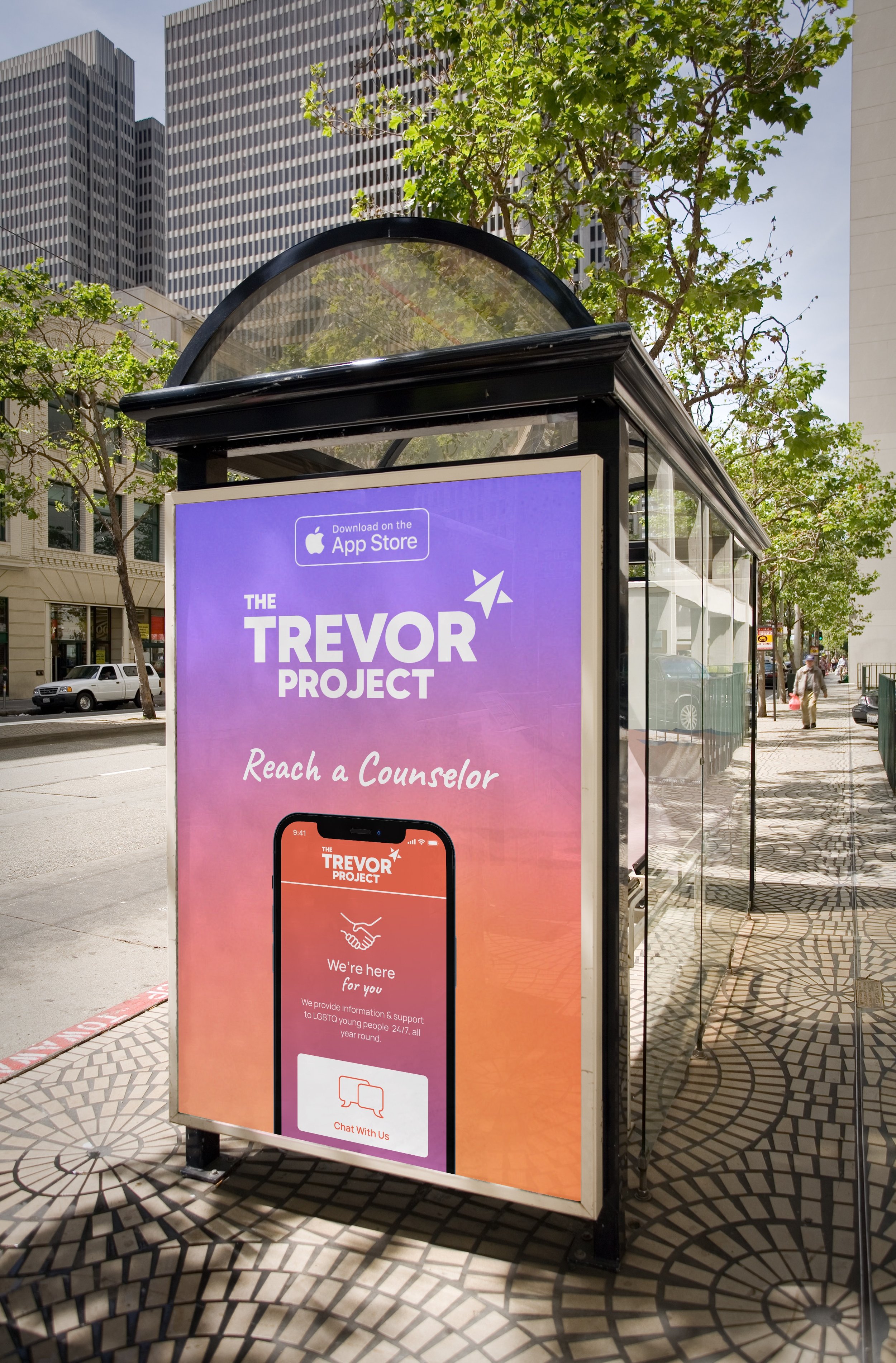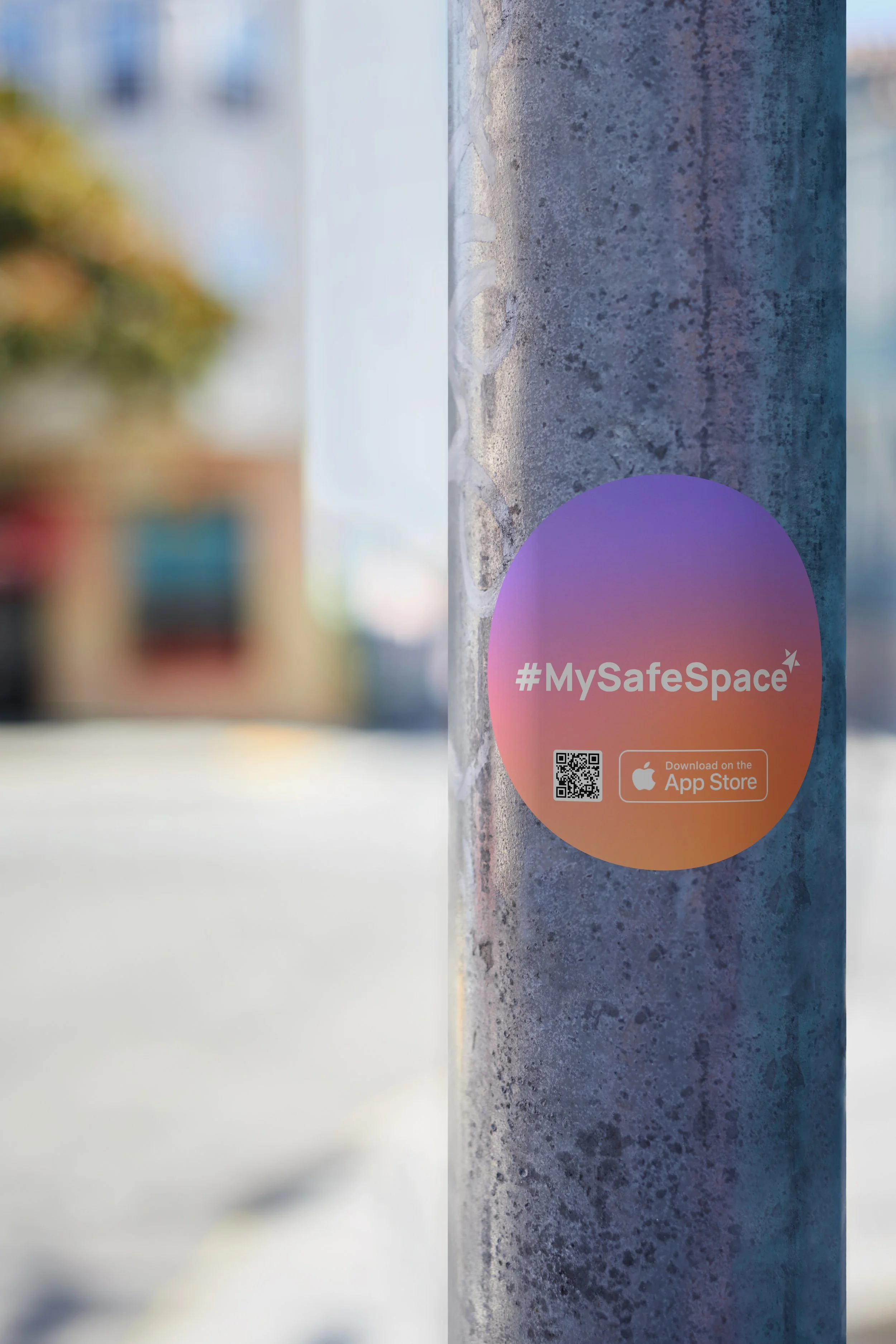
UI/UX + Design Research
The Trevor Project
The missing link between LGBTQ+ youth and finding mental health care and social support.
Why did I team up with The Trevor Project?
The Trevor Project focuses on suicide prevention efforts among LGBTQ+ youth through a toll-free telephone number that offers trained counselors and online resources many young teens do not know about.
Tools Used
Figma, Adobe illustrator, Miro, Google Forms
Project Brief
As someone who has struggled with bullying and making friends as a gay teen, it was a daunting experience to talk about LGBTQ+ issues, topics, or mental health care. I asked myself what I would need to help young teens with the same problems today.
Goal
Using the IBM Design and Sprint Design Process, I wanted to create an affirming space where LGBTQ+ youth has easy access to finding support.
Award
Spring 2022 Communication Design Exit Review | Design for Greater Good Award 
Why is LGBTQ+ youth not reaching out to mental health care services?
The majority of LGBTQ+ teens said that they found mental health care unaffordable. The lack of transportation and counseling being too far from home led me to the following statistic.
Where is the problem taking place?
I began my online research by searching common spaces where LGBTQ+ did not feel safe. LGBTQ+ teens said that their homes and social media are known to be non-affirming. I needed to create something that could be utilized at home and used as a social media platform.
Out of 35,000 LGBTQ+ youth ages 13–24 across the United States were surveyed…
1 of 3
LGBTQ+ youth found their home to be affirming.
88%
said social media negatively impacted their well-being.
23%
had no access to an affirming online community.

Who is my audience?
LGBTQ+ youth ages 13-24 across the United States.
What problem am I trying to solve?
LGBTQ+ youth doesn’t have an affirming online space to build resilience when facing adversity with bullying or to feel out of place in society.
Sprint Questions
If LGBTQ+ teens want affordable mental health care, what needs to be true?
The platform needs to be accessible/affordable.
If teens are afraid to ask parents for LGBTQ+ mental health care, what needs to be true?
Create a platform with credibility.
If teens are closeted, what needs to be true?
Teens must be able to remain anonymous.
If teens are having trouble with transportation to health care centers, what must be true?
Easy physical and digital access to a counselor.

Public Poll
When facing adversity with bullying or feeling out of place in society, what are ways LGBTQ+ youth ages 20-23 find comfort and strength?
Self-Realization Includes:
Chosen family
Therapy
The unapologetic embracing of the entire self
Learning more about the LGBTQ+ youth
When designing my platform, I would focus my content on helping the user through the self-realization process.
Expert Advice
“Cognitive Behavioral Therapy and Trauma-Focused Cognitive Behavioral Therapy are the best therapy methods.”
Effective Therapy Methods
After conducting my interview research with Dr. Watt, I now know it is imperative to have counselors specializing in these two therapy methods.
Cognitive Behavioral Therapy
It helps you become aware of inaccurate or negative thinking so you can view challenging situations more clearly and respond to them more effectively.
Trauma-Focused Cognitive Behavioral Therapy
Resolves many emotional and behavioral difficulties associated with single, multiple, and complex trauma experiences.
Empathy Map: Raquel
I chose to interview Raquel. She is someone who is part of the LGBTQ+ community and faces similar issues in society. During my interview, my main goal was to understand if a VR headset or a mobile application would help LGBTQ+ youth the best. In the end, I discovered that my interviewee found a mobile application most helpful in the sense of communication and transportation. However, Raquel thought the VR headset would be a misuse of funds.
-
• Having a support system helped
• Having online friends helped
• She has lack of transportation to counseling
• Counseling is too expensive
-
• Video or voice call is the best way of
communicating with a counselor• LGBTQ+ articles were helpful
• A digital option would make counseling accessible
-
• Reach out to friends for support
• Have experience in coming out process alone
• Reads LGBTQ+ articles
-
• VR is a misuse of funds
• Distant from society
• Feels that self-realization helped

Market Analysis
Better Help
Better Help allows people to receive professional help from licensed therapists and counselors. As an LGBTQ+ young adult myself, I conducted a user test and found that Better Help:
Is not centered toward LGBTQ+ youth.
Does not allow teens under 18 to receive counseling services without a parent’s permission.
Has a high cost.
User Journey Map
In the User Journey Map, I learned that users need more communication with friends or family throughout their day. Therefore, I thought about how family, friends, and counselors could have active communication with the user through The Trevor Project.

How Might We’s
I created HMW categories, questions, and possible solutions to begin my paper prototypes. Some of the most successful HMW questions can be seen below.
Categories
Questions
Paper – Final Prototypes
I focused on remaining within The Trevor Project’s existing brand guidelines. I incorporated the resources they provided and categorized them into four different tabs. The finished product is an affirming mobile application geared towards LGBTQ+ teens.
Get Help
Explore Topics
Forums
Donate

Communication in a Safe Space
The chat, call, and video sessions would be integrated within the mobile app, allowing the teen privacy. In addition, a video call session feature allows the user to communicate effectively with the counselors.
In the LGBTQ+ community, it is common to create a chosen family. A chosen family means deliberately choosing someone for mutual support and love. For example, on the mobile app, the user could add three close family members or friends to communicate with them or as a reminder of who they love.
Finding the Right Counselor
When selecting to chat, call, or video chat with a counselor, the user will be asked a series of questions to help the counselor understand how they feel. The user will then be matched with counselors specialized in cognitive behavioral therapy and trauma-focused behavioral therapy. If the user wants to communicate differently, they can do so within the chat or main page.

Easy to Donate
Users will have the ability to donate once or have recurring donations towards The Trevor Project foundation. After donating, users will be provided information on where the money will go.
Motivational Notifications
If LGBTQ+ teen does not receive notifications from anyone in the morning, they will receive automated motivational notifications from the Trevor Project.

Bring Awareness on Instagram
After completing a donation, the user can share it on Instagram, Snapchat, or Twitter to encourage others to donate. Also, by advertising the mobile app on Instagram, The Trevor Project can attract LGBTQ+ youth seeking a safe space.
User Journey Map: After
I revisited the User Journey Map to ensure the mobile app covered all pain points. In addition, the user will now increase communication with The Trevor Project, counselors, friends, and family throughout their day.

Public Awareness
Posters would be displayed around busy public transportation areas to spread inclusivity. In addition, stickers would be distributed at events for the user to place in a safe space, with a QR code leading them to download The Trevor Project app.






